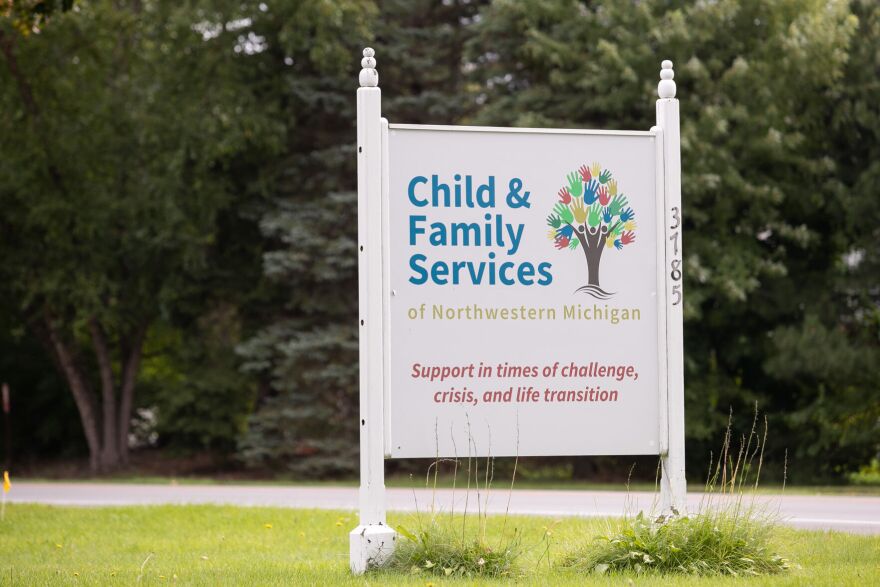Child and Family Services of Northwestern Michigan is the largest private foster care organizer in the region. The organization has provided homes for more than 16,000 children since 1937.
To support their extensive network of foster parents and kids, the Brown Bag Campaign is returning for its 35th year.
“The whole idea behind it is that foster kids would come in with very few belongings, enough to fit in a paper or plastic grocery bag,” Emma Smith, CFS director of development and marketing, said.
The goal isn’t just to bring in funds to support the CFS operation, she said, but also to bring attention to the need for more foster parents.
“We don’t have people knocking on our door wanting to be foster parents,” Smith said. “I wish we had the opposite problem. I wish we had too many foster parents and not enough kids, instead of our current situation of a lot of kids to place with not enough foster parents to take them in.”
Starting this month, brown bags will be placed in grocery stores across 20 counties between Luddington and Mackinaw, west of I-75. The goal is to raise money to provide foster children with basic necessities, comfort, counseling and learning opportunities.
Every year, this campaign brings in about $30,000, Smith said.
These funds help provide foster kids with good experiences and give foster parents a stipend to offset the cost of caring for the child.
“We really aim to be able to provide those normal experiences that kids who are not in foster care are getting, but kids who are might not be,” she said. “Birthday parties, maybe they really like soccer and want to go to soccer camp, things like that.”
CFS currently has about 80 foster families, but that number changes based on a variety of factors, and some families stop fostering after reaching their original goal of adopting.
“A lot of times we have to say no when CPS calls, because we just don’t have the placement,” Smith said. “The primary goal is almost always reunification … to have kids go home to their natural parents.”
Jennifer Gorman, 47, has been a foster parent for a few years. She said fostering is something she always knew she was called to do, but waited until her four children were older.
“Just knowing there’s such a need and that we have the capacity to help, it’s not easy by any means … but knowing that we’re a good, safe option, we love doing it,” Gorman said.
She and her husband have fostered kids from three months of age to 11 years old. She said a question they’re often asked is how they’re affected by the sadness of having kids leave after staying with them.
“When they go into a good situation after us, where it’s long term and what they need, I don’t know, somehow it makes it easier to let them go,” she said.
Smith said feeling sad when the kids leave is an indication that the foster parents gave them the love they needed.
“People tell me all the time ‘I could never do that, I would get too attached’... but if you’re not loving that child like they’re your own, if you’re not completely heartbroken when they leave your home, you didn’t do it right,” Smith said.
In the state of Michigan, she said there are about 10,000 children in foster care, and the goal isn’t usually to have them adopted. Most of the time, Smith said, the goal is to have them reunited with their parents.
“I have never met a parent who didn’t love their child,” she said. “Most of these parents need guidance and help connecting with resources. We help empower parents to show them they can do it on their own.”
Most frequently, she said they connect parents with treatment for substance misuse, housing assistance and help with ending abusive relationships.
“Back when I was a caseworker, I would tell clients, ‘I’m not going to take your child away from you,’” Smith said. “And the first thing I would ask was: ‘What do we have to do to get you and your child back together?’”
Gorman said she would recommend fostering to anyone who has the capacity for it.
“It’s not for everyone, but most of the people I’ve talked to about it have, you know, had it in the back of their mind for a while,” she said. “For the people who have that calling on their heart, lean into that.”



